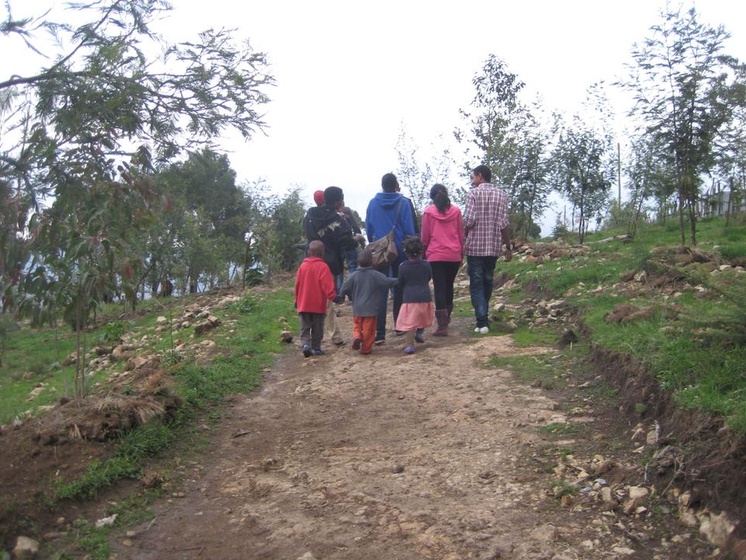ADDIS ADABA, Ethiopia—“Forengi” is the word for “foreigner” here, something I learned when I heard a few locals say it to me on the streets of Addis Ababa, Ethiopia. It’s not an insult; the people are merely pointing out that I look different, and I am indeed from another country. There are customs here that I’m not aware of, and when I do not respond correctly in certain situations it is even more apparent that I’m an American.
I’ve corrected myself on several occasions, and learned from my mistakes. For example, when shaking an older person’s hand, I now know to grasp the elbow region of my right arm with my left hand as if to support the handshake. To say “yes,” the Amharic word is “awo,” but it is more common to say yes by a sharp intake of breath while jerking the head back slightly.
When a group or family sits down to a meal, it is polite to turn to other tables in the room and invite them to eat with you. Usually the other tables decline the offer, but it is expected that you ask them to eat regardless.
The custom that I’m least used to is called “gorsha” which is a food-sharing custom that takes place during a meal. One person feeds the first bite of injera and wot to her neighbor, who accepts the food from the other’s fingers. It’s a gesture of affection, but I am not used to being fed pieces of meat and injera from another person’s fingers. It took me three tries to successfully accept a “gorsha” without laughing or blushing.
Although I will always be a “forengi” to the people here, I am learning some Ethiopian customs, and perhaps by the end of my trip I will be able to blend in a bit more.


